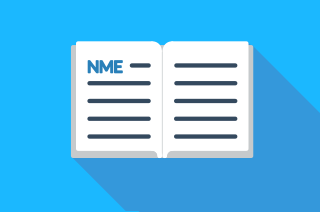Today we celebrate Intellectual Property around the world. Last year, we stressed the landmark decision of the French Competition Authority marking the start of negotiations between press publishers and tech giants for fair remuneration. This year, we assess progress in copyright negotiations and challenges ahead.
What happened over the past year
In France
In October 2020, the Paris Court of Appel ruled in favour of press publishers again, asking Google to make genuine remuneration proposals. It took nine months for Google and the French publishers’ association to give birth to a framework agreement.
The €62million framework agreement is said to cover neighbouring rights and participation to the Google News Showcase[1], yet without any public calculation method. A month later, the French Competition Authority charged Google with breaching the good-faith negotiation obligation within the three-month deadline[2]. The Authority is also uncomfortable with News Showcase negotiations potentially replacing the application of copyright law. We are now waiting for the hearing on 5 May. Potential sanctions, which could go as high as 10% of global revenue (around €16 billion for Google), are expected in October 2021. In parallel, the competition saga continues with in-depth investigations for alleged abuse of dominant position.
In Australia
Meanwhile, the Australian Consumer and Competition Commission (ACCC) released a proposal for a mandatory news media bargaining code, an attempt to curb the power of Google and Facebook and make them pay for news. Due to immense pressure from tech companies, the final version of the code of conduct came out diluted with weaker obligations and will only apply as a backstop in case of unsuccessful commercial agreements.
Yet the threat of arbitration and minimum standards obligations has proved efficient: Google concluded 50 deals[3]with Australian news titles including Seven West Media, Nine, News Corp, Junkee Media, The Guardian and ABC. Facebook reopened news pages in Australia and concluded agreements with local publishers (e.g. Schwartz Media, Solstice Media) and larger ones (Seven West Media, News Corp, Nine Entertainment). More publishers interested in entering in negotiations must apply through the Australian Communications and Media Authority’s register. So we can anticipate that this series of agreements is only the start of a longer process.
Impact on the European news media industry
First, the French and Australian cases clearly show that what was initially a copyright problem has become a competition issue. In both jurisdictions, competition watchdogs took over the cases and delivered negotiation frameworks to force tech companies to make genuine remuneration proposals.
However, the gap between remuneration offers in Australia and in France caught our attention. French publishers agreed to Google News Showcase agreements worth 22 million USD / year[4]. Whereas Australian companies secured deals reaching 100 million USD / year[5], an amount almost five times higher for a market less than half the size of France.
So one might ask: what is a fair remuneration proposal for European publishers?
The Copyright Directive (EU) 2019/790 does not provide for any precise remuneration model. In theory, the press publisher right corresponds to “the organisational and financial contribution of publishers in producing press publications” (recital 55). Therefore, remuneration should compensate for investments made.
The press publisher right also corresponds to “the right of reproduction and making available to the public” (recital 57), a right available to the film and music sectors to make deals with YouTube for instance. Thus, remuneration should consider how press content improves platforms’ services in terms of attracting users, increasing interactions, generating advertising revenues, etc.
With that in mind, the French Competition Authority required platforms to share “all relevant, clear and intelligible information about the use of press publications and any other data necessary for the transparent evaluation of the proposed remuneration”[6]. In other words, platforms must be more transparent and open the data box to business users that rely on their distribution systems.
Consequently, news media companies must carefully think through their business models and their content value. In terms of negotiations, it would be strategic to wait until the Copyright Directive is transposed to give publishers a strong legal basis for negotiating at market value. Otherwise, it should be clear that agreements based on new tech products (e.g. Google News Showcase) do not amount to press publisher right agreements. In terms of distribution, whether to negotiate individually or collectively – through bargaining agreements or a collective management organisation – depends on national traditions and industry preferences.
Policy challenges ahead
French and Australian developments have sent clear signals that copyright is a strong and important basis for fair remuneration, but current market structures do not allow for balanced negotiations. There are in our view responses the EU can deliver:
Short- term:
- To elevate the discussion about the enforcement of the press publisher right at European level within the European Competition Network ;
- To regularly put on the agenda of the Copyright Contact Committee for Culture and Justice Ministers to discuss and share experience about the difficult application of Article 15 of the Copyright Directive.
Mid-term:
- To introduce in the future Digital Markets Act1) an obligation for gatekeepers to provide “fair and non- discriminatory general conditions of access” to core platform services to ensure the fair treatment of business users 2) to build on the market investigation instrument to allow the Commission to impose binding and tailored codes of conduct to address the bargaining power of gatekeepers.
- To clarify in the future Digital Services Act risks on press freedom and access to information[7] with related mitigation obligations on very large online platforms. Obligations would include transparency obligations and notification requirements for new T&C that affect the visibility or presentation of press content. More generally, an exemption from platforms’ content moderation policies for professional journalism is necessary to ensure that free press remains free online.
We must also acknowledge that the remuneration problem is not purely legal. It is also technological.
Newsrooms need to get better equipped for the online management of their rights. The EU study on Copyright and New Technologies[8], to which News Media Europe is contributing, is looking into this issue. The European Commission is for instance assessing the technological gap of the news industry as compared to other creative sectors (e.g. music, AV, book and scientific publishing). The study could conclude for the need of European investments in new technologies (content tracing, data analytics, artificial intelligence, etc) to create the newsrooms of tomorrow.
There is already strong indication that the future of copyright lies in better data management. With new consumption behaviours, a trend accelerating with the Covid19 crisis, the licensing market has largely shifted online and new processes must be put in place to better quantify the value of online news and monetise its consumption. News Media Europe is working to ensure EU public policies can accompany newsrooms in their technological journey.
-Aurore Raoux
[1] https://www.reuters.com/article/us-google-france-copyright-exclusive/exclusive-googles-76-million-deal-with-french-publishers-leaves-many-outlets-infuriated-idUSKBN2AC27N
[2] https://www.reuters.com/article/us-france-google-antitrust-exclusive-idUSKBN2AN268
[3] https://www.theguardian.com/technology/2021/feb/20/guardian-australia-strikes-deal-with-google-to-join-news-showcase
[4] https://www.reuters.com/article/us-google-france-copyright-exclusive-idUSKBN2AC27N
[5] https://www.afr.com/companies/media-and-marketing/facebook-signs-publishers-with-independent-publishers-20210226-p57617
[6] https://www.autoritedelaconcurrence.fr/en/press-release/related-rights-autorite-has-granted-requests-urgent-interim-measures-presented-press
[7] Article 11 of the Charter of Fundamental Rights
[8] https://etendering.ted.europa.eu/cft/cft-display.html?cftId=5859










